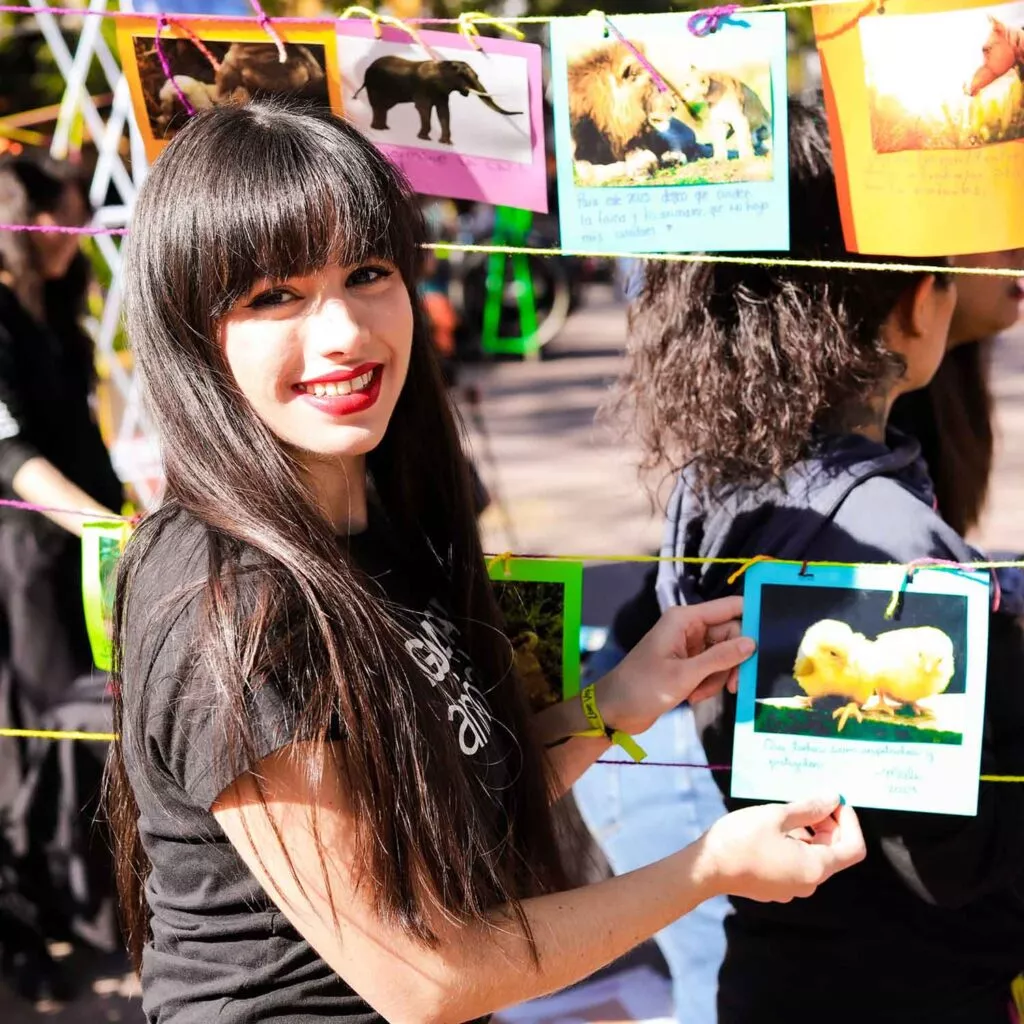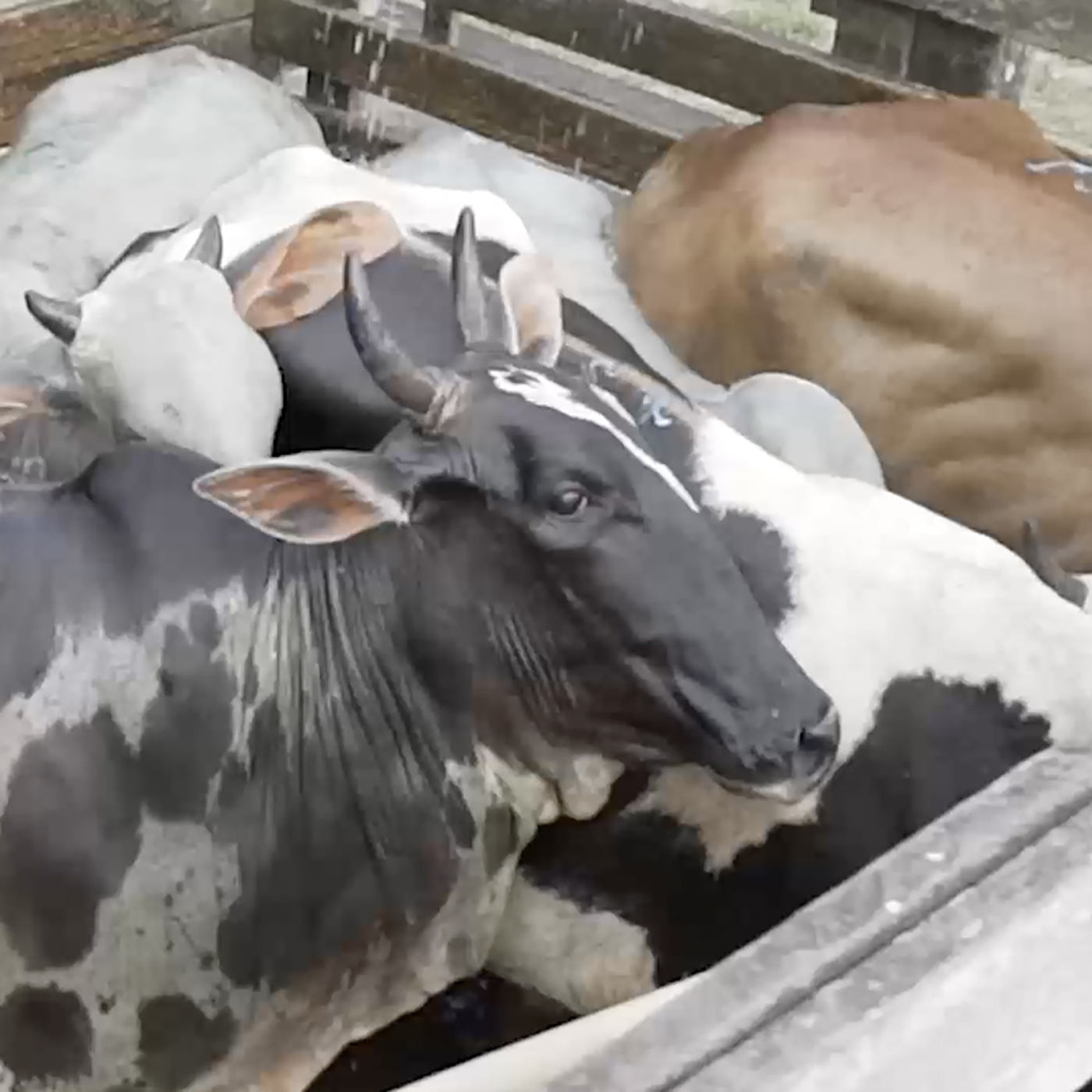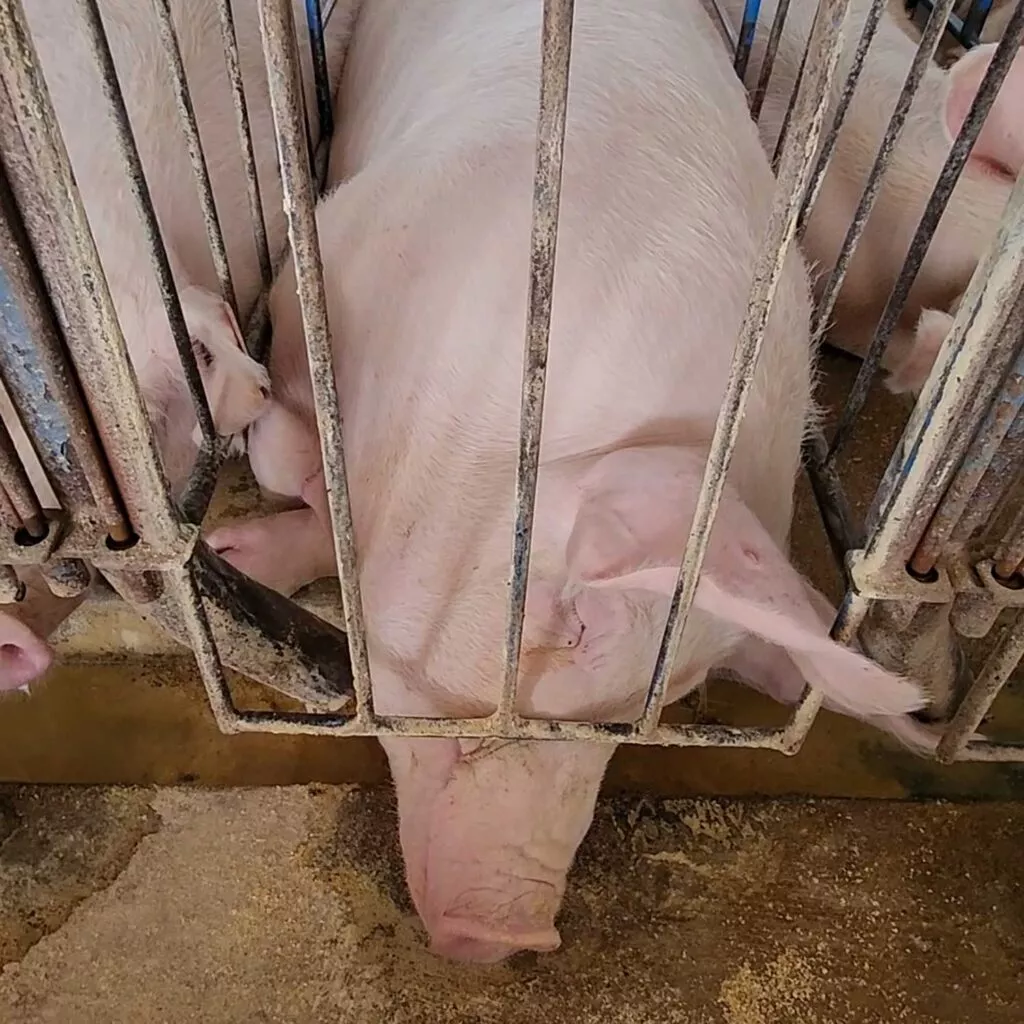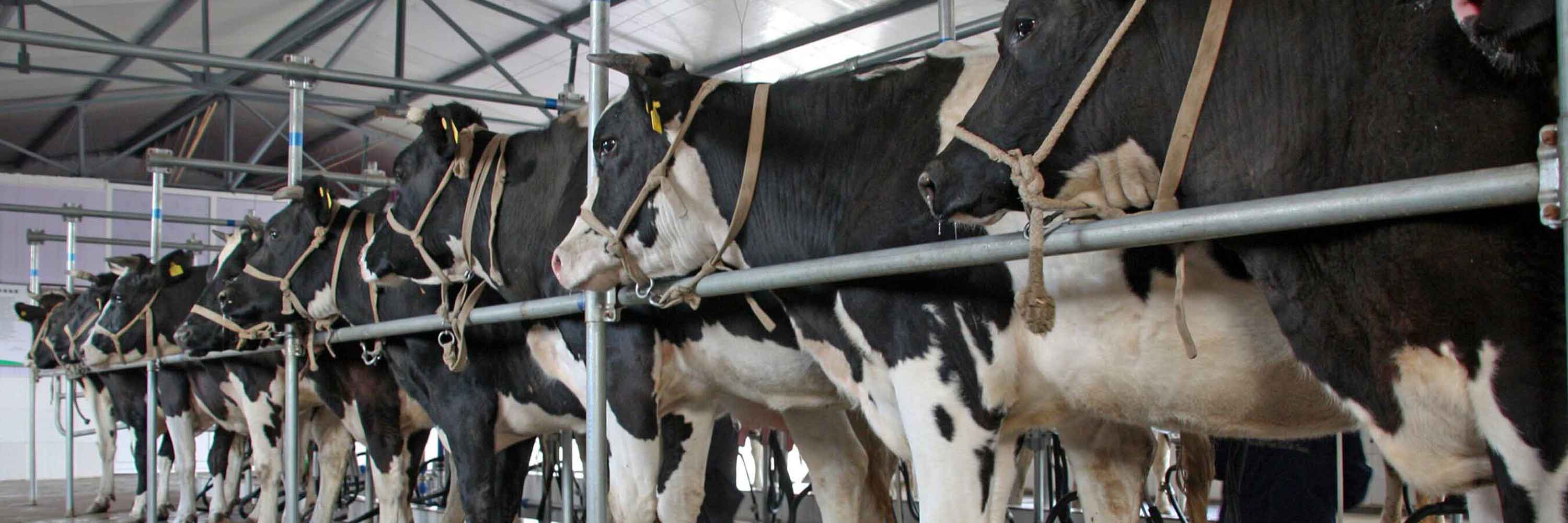
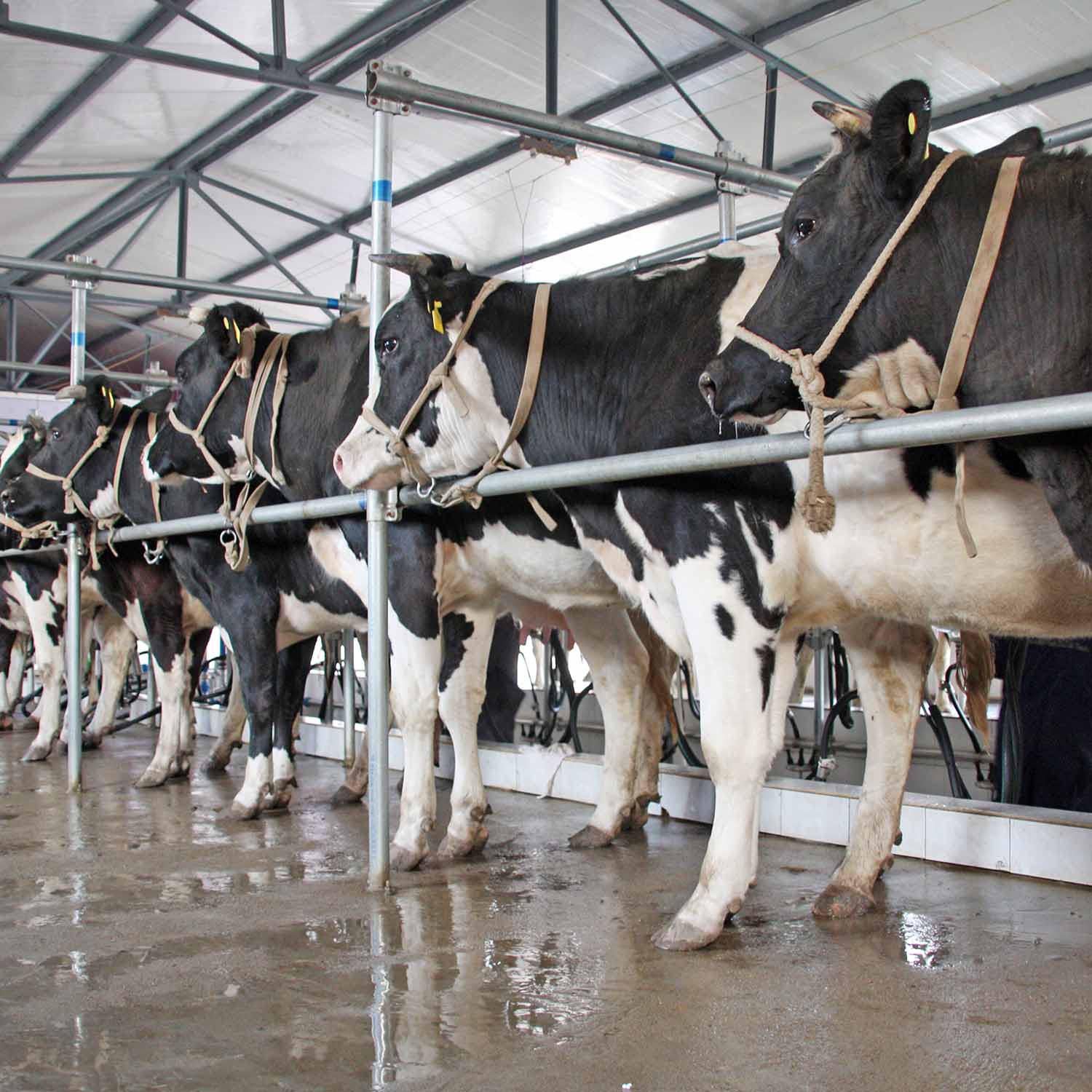
Everything you need to know about factory farming

Factory farms were created based on the assumption that the ‘factory’ concept could be applied to animal farming.
This approach comes at the expense of animals, who are treated as commodities. To house such a large number of animals, these farms intensively confine them to small spaces such as cages or crates. They are unable to carry their natural behaviors inside the tiny pens. Most spend their lives inside a shed–never to feel the sunlight or breathe fresh air.
This is the reality for farmed animals used for meat, dairy and eggs.
- Factory Farming in the US: Living Conditions
- Factory Farmed Chickens & Hens
- Factory Farmed Cows
- Factory Farmed Pigs
- Factory Farmed Fish
- Factory Farming in the US: Regulations
- How You Can Help
The animals in the US who are currently factory–farmed include cows, pigs, chickens, hens and fish.
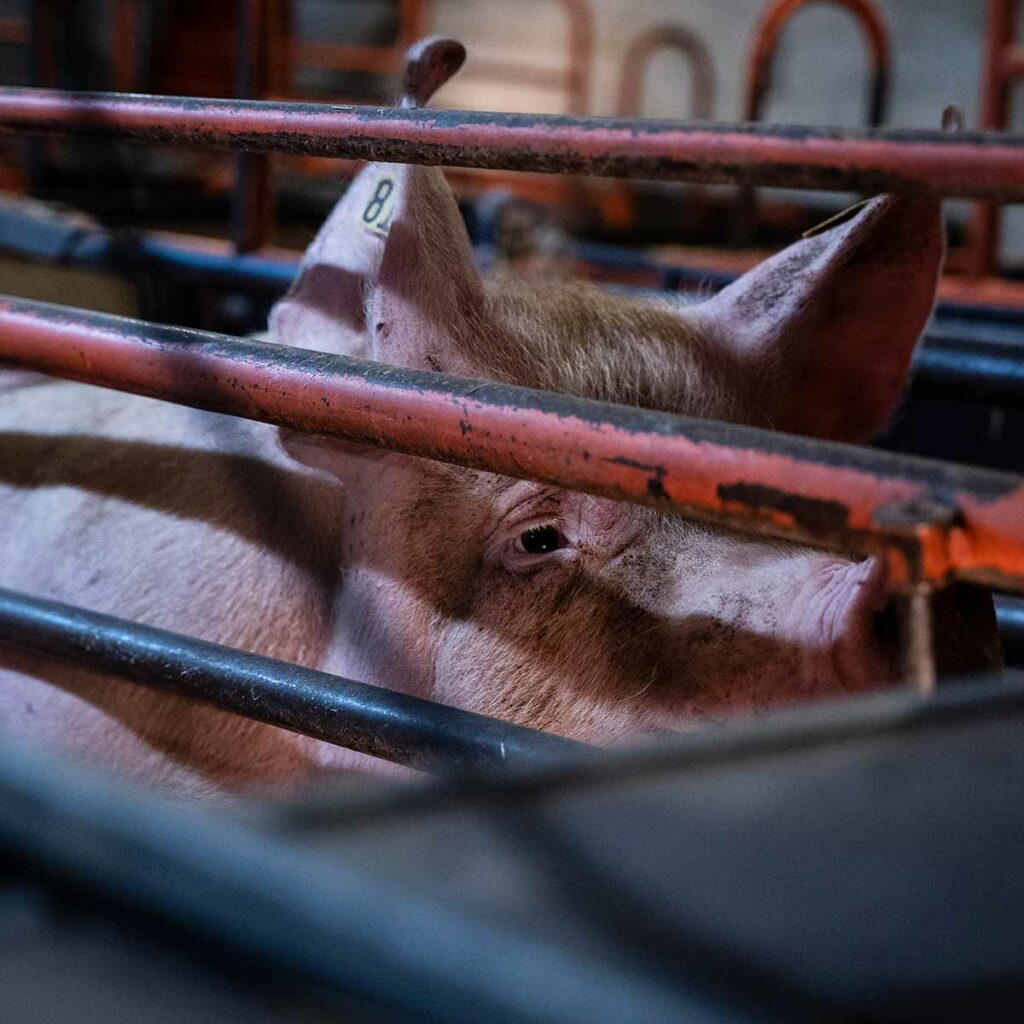
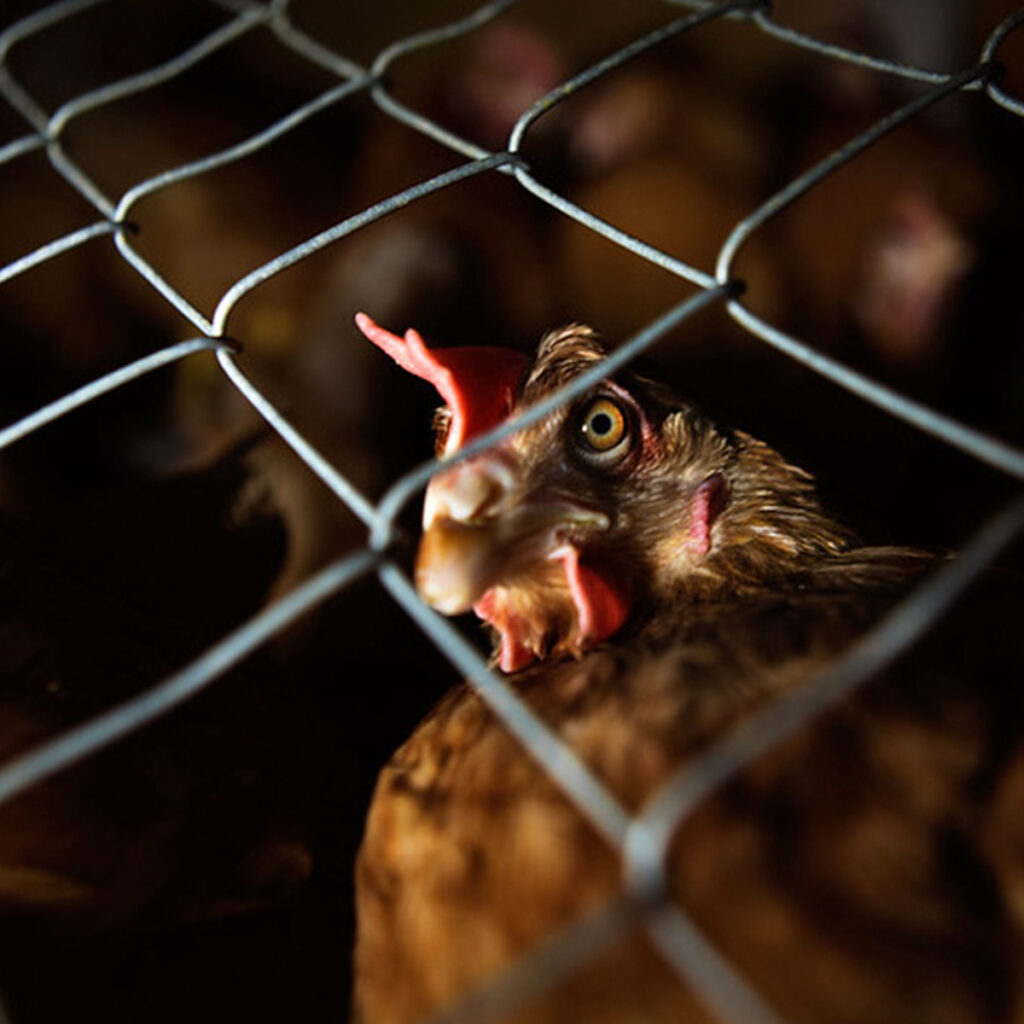

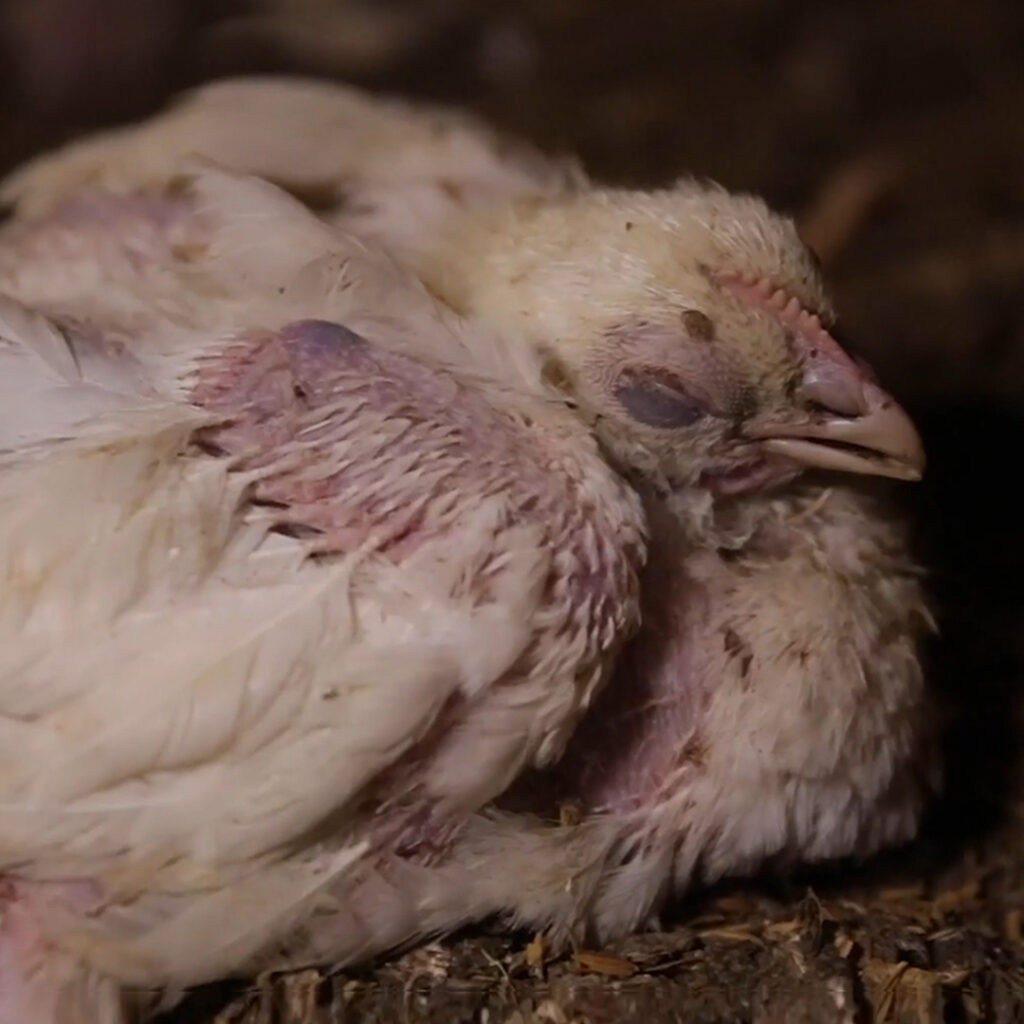
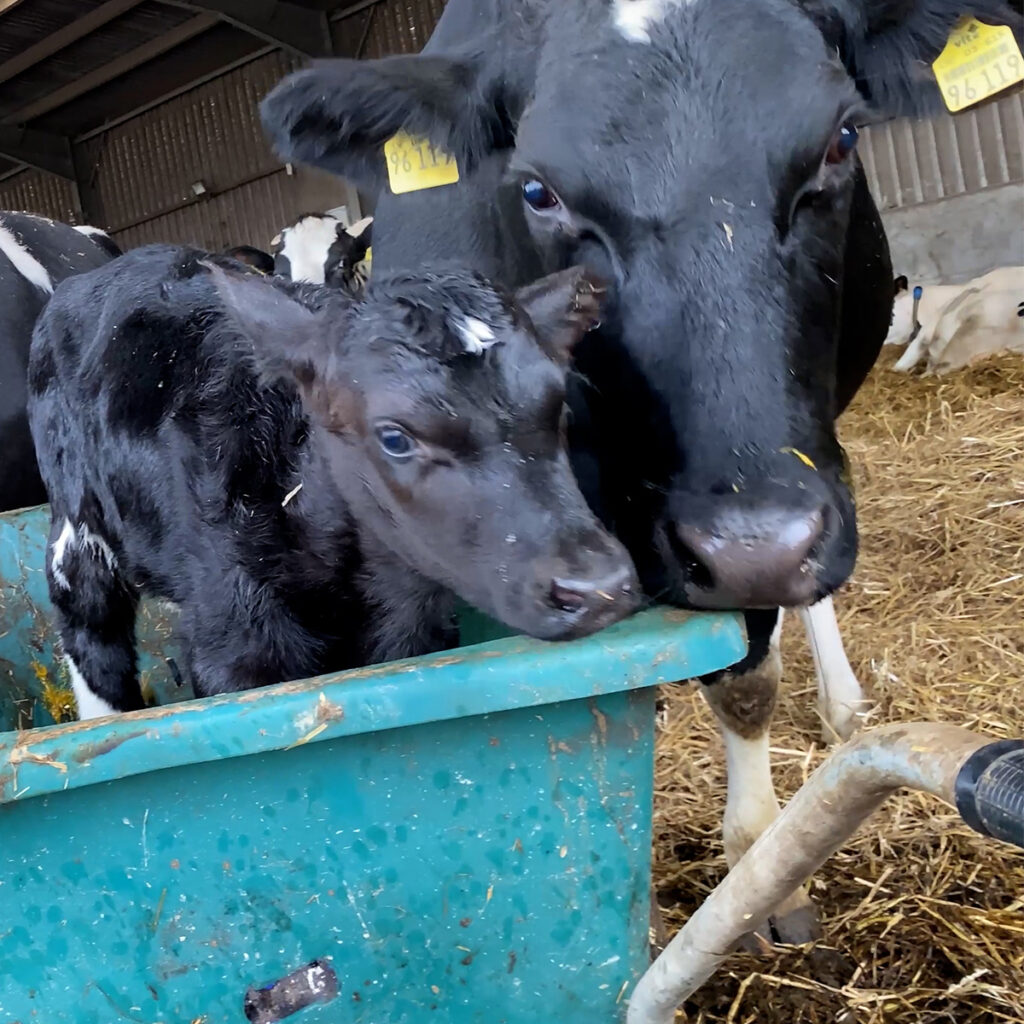
Factory Farming in the US: Living Conditions
Nearly 99 percent of farmed animals in the US are factory farmed. There are around 250,000 farms in the US. Every day, 23 million land animals are killed on these farms–around 266 every second. This number does not include farmed and wild aquatic animals. If they were, the number of animals killed would increase from 10 billion animals per year to 13.8 billion.
Despite this huge number, most of these animals are nowhere to be seen. They are kept inside farms with no windows and no indication as to what goes on inside their walls.
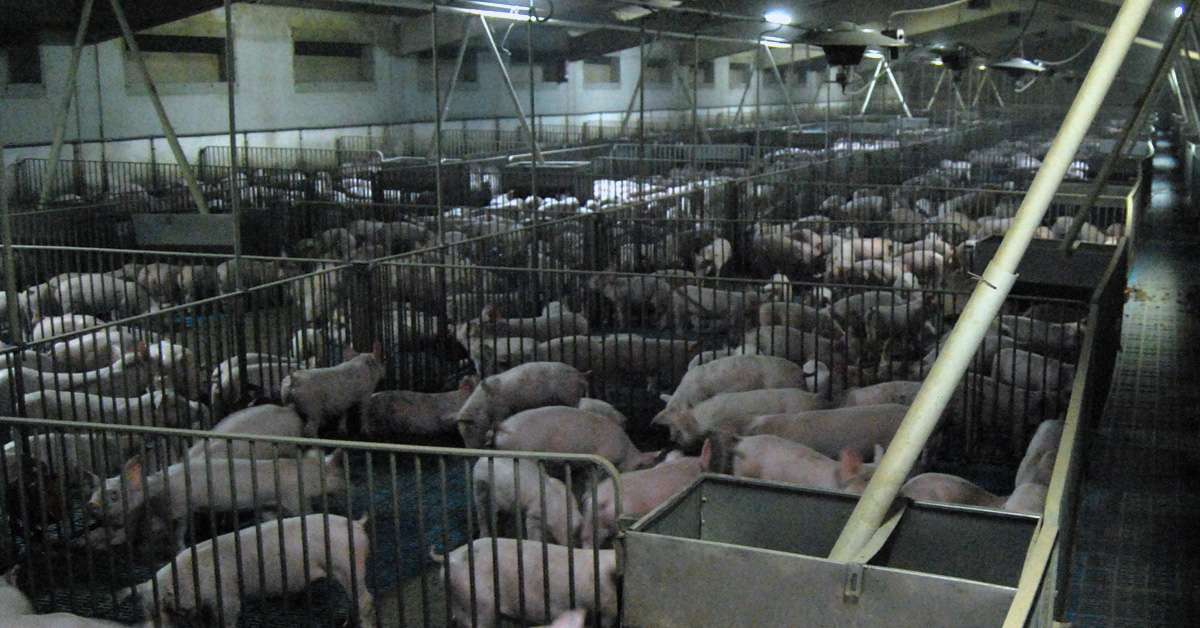
Factory Farmed Chickens & Hens
Chickens Raised For Their Meat
Chickens are the most abused land animal on the planet. In the US, more than nine billion chickens are killed for their meat every year–over 25 million every day.
They are bred to grow so big, so quickly that their legs and organs can’t keep up. They suffer from heart attacks, debilitating leg deformities and heart attacks. Those that survive are typically slaughtered at just 42 days old.
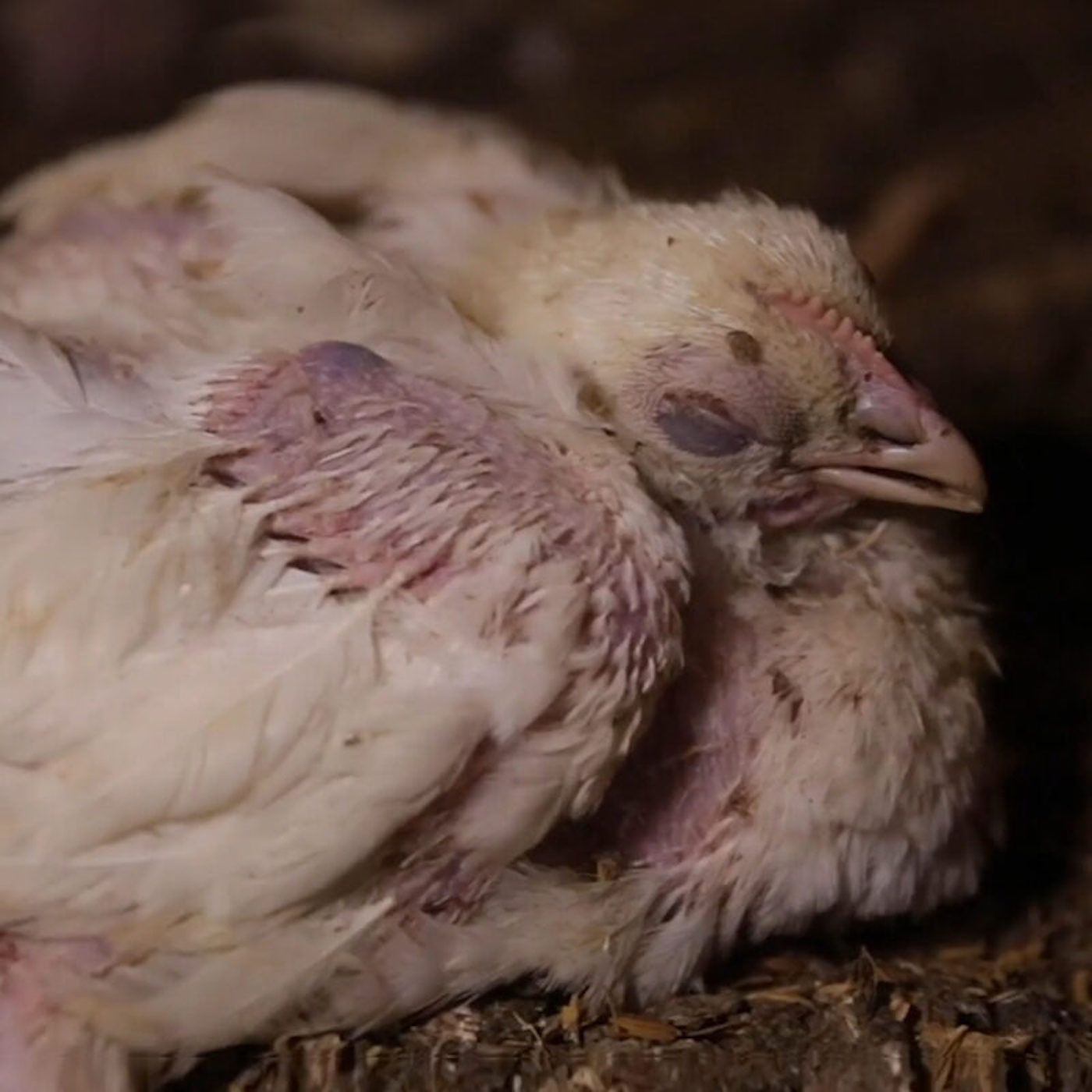
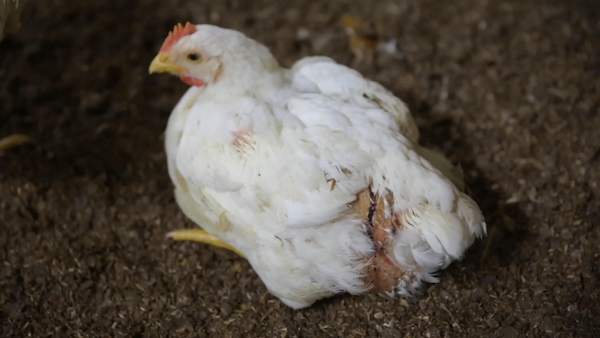
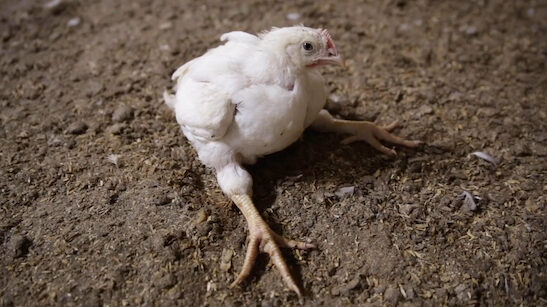
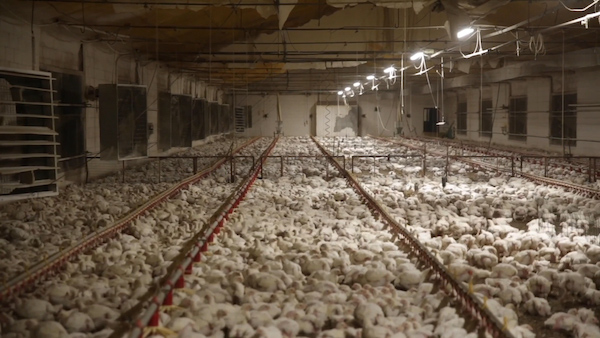
Chickens are not covered by the United States Humane Slaughter Act which protects from “needless suffering.” Chickens are killed using electrical water baths or gas. Electric water baths are used to stun the chicken before being killed. They are painfully hung upside down by their feet on a conveyor. They are carried to the water bath where their heads are dunked into electrified water. Their throats are then slit after exiting the bath.
Chickens are intelligent, living beings who feel fear and pain. Like humans and other animals, they want to live. This desire for life is the reason why many birds lift their heads during the stunning process to avoid the electrified water and are therefore slaughtered while still conscious.
To date, Animal Equality has investigated over 40 chicken farms and slaughterhouses. In the US, an investigation inside a chicken hatchery showed live chicks being mutilated by fast-moving machinery. Newborn chicks were found with their bodies ripped open or crushed by equipment. More drowned on the factory floor in water and chemicals and in trays that ran through the facility’s washing machine.
This hatchery sells chickens to factory farms that supply stores like Target, Walmart, Costco and Kroger.
Hens Used For Their Eggs
Every year in the US, over 380 million hens are exploited for their eggs.
Hens are selectively bred to produce the maximum number of eggs. Most hens are kept inside cages alongside sixty other birds for up to two years. Around 72 percent of hens used for eggs–over 273 million animals–are confined to these cages.
Because of the size of these cages, hens can’t even spread their wings or exhibit natural behaviors. On average, hens live in a space the size of a standard piece of paper. These living conditions cause frequent death of hens who are left to rot in the same space alongside living birds.
But that’s not all they have to endure.
Hens often become aggressive toward each other because of stress. Instead of allowing them more space, the industry solves the problem by cutting their beaks–a process called ‘beak conditioning.’
The US egg industry is also responsible for the killing of 250 million male chicks every year. These baby chicks are unable to produce eggs and are not one of the fast-growing breeds used for meat. So they are deemed useless by the industry and discarded by being ground up alive.
Animal Equality has investigated egg farms around the world. In 2020, Animal Equality investigated a UK egg farm in West Sussex and found many of the hens were suffering from severe feather loss and were completely bald with raw skin. Others didn’t survive and their bodies were left to decay in cages alongside living hens.
Factory Farmed Cows
Cows in The Dairy Industry
Every year, over 9 million cows are exploited for their milk in the US.
Like humans, cows produce milk for their babies. The females are artificially impregnated just for milk production. When born, female calves will live the same sad life as their moms. The males–approximately 700 thousand of them–will be killed for veal.
The females are confined indoors and are forcibly walked back and forth to the milking stations. They are attached to machines that take the milk intended for their calves, who have been torn away an hour after birth to preserve the milk.
But that’s not all. The baby cows are kept separate from their mothers and confined to barren hutches. Nearly 60 percent of these calves are tied by the neck inside these stalls and are unable to perform the most basic behaviors. They are fed milk replacers while humans consume the milk intended for these babies.
As these young cows get older, they go through painful mutilations. They are branded, dehorned and their tails are docked.
Cows are extremely maternal and social animals who can naturally live up to 20 years. However, on dairy farms, a cow is slaughtered when she can no longer produce milk–around three to four years old. She is sold for cheap meat or leather products.
Animal Equality investigated a US dairy farm, exposing shocking neglect of baby cows at a Babybel supplier. The footage shows the suffering of dozens of baby cows who are freezing to death in negative 20-degree temperatures. Calves were shown dying from scours and pneumonia and left without veterinary care. Many had just been separated from their mothers as little as 30 minutes after birth.
Factory Farmed Pigs
Over 130 million pigs are slaughtered each year in the US–over 350,000 each day. Most of them are factory farmed and kept indoors inside concrete or slatted floor pens. They are kept in confined spaces–with some farms housing up to 2,500 pigs in one building.
Pigs in factory farms are not able to fulfill their basic needs and behaviors. Mother pigs are confined in crates during pregnancy and again after giving birth for weeks on end. The crates allow no space to move or turn around, let alone care for their babies. The extremely limited spaces cause boredom and stress in these intelligent animals. Many painfully bite their brothers and sisters and sometimes even turn to cannibalism. For this reason, farmers often cut piglets’ tails and clip their teeth, without giving them any painkillers.
In May 2021, we released an investigation inside a ‘quality assured’ pig farm where we filmed piglets being hammered to death or slammed against the concrete floor.
Aquaculture: Farmed Fish
In the US, up to 3.8 billion fish are farmed and killed each year. That’s over 430,000 per hour.
There is clear scientific evidence that fish feel pain and can suffer just like other animals. They also have the ability to form complex social groups. Yet farmed fish do not receive the same legal protections as most farmed land animals. There are currently no specific requirements as to how they should be handled or killed.
The majority of fish eaten today are raised on aquafarms, where they spend most of their lives confined in tightly packed environments. In these settings, fish can suffer up to two years in water with high levels of ammonia and nitrates.
These fish are commonly infested with parasites that feed on their blood, organs and gills. Bacterial infections have been found to run rampant on these farms.
In the fall of 2020, Animal Equality went undercover at a US catfish slaughterhouse–Simmons Farm Raised Catfish. Simmons claims ‘humane’ standards for stunning and killing–stating the fish are processed “within 30 minutes” and in a “swift {and} sterile” manner. Instead, investigative footage showed fish left out of water–gasping for air–for up to an hour. Many are ineffectively stunned before reaching the beheading machine to be killed while conscious.
The company supplies US grocery stores like Piggly Wiggly, Save A Lot and Kroger and restaurant chains Captain D’s and Cracker Barrel.
Factory Farming in the US: Regulations
Current Regulations
In the US, there are only two federal laws protecting farmed animals but only during transport and slaughter.
The Twenty-Eight Hour Law sets a bare minimum standard for farmed animals on live transports to farms and slaughterhouses. It simply states that if they are being transported for more than 28 consecutive hours, the animals must be offloaded for at least five hours.
The Humane Slaughter Act requires slaughterers to stun some animals before they are slaughtered. The Act declares that its aim is to “prevent needless suffering” by inducing the loss of consciousness in animals before being killed. Chickens are not recognized under this law–yet are the most abused animal on factory farms.
Enforcement
For any policies or welfare standards to have a direct effect on the lives of animals, appropriate enforcement measures need to be in place. The laws must be monitored and, where illegality is discovered, those involved must be held accountable.
Without proper enforcement, vulnerable animals are left even more vulnerable. And the animal agriculture industry is given even greater power and autonomy, knowing that laws can be broken with few consequences.
In the US, the USDA’s Food Safety and Inspection Service (FSIS) is the main authority that monitors federal compliance with animal welfare standards. But in 2019, the USDA passed a ruling to reduce the number of inspectors in slaughterhouses by 40 percent. This new rule would allow slaughterhouses the authority to monitor its own compliance with animal welfare and health standards.
The Department of Justice (DOJ) and the Department of Traffic (DOT) are responsible for overseeing the Twenty-Eight Hour Law. The Animal Welfare Institute found this law is rarely enforced by the DOJ and DOT.
When local laws are violated, local authorities are responsible for initiating formal enforcement action, which may or may not lead to prosecution.
Animal Equality’s Findings
Animal Equality has investigated over 800 facilities across 13 countries, extreme suffering or deliberate cruelty in each and every one of them.
When there are laws in place to protect farmed animals, we must demand that the relevant authorities ensure that these laws are enforced. We cannot rely solely on animal protection organizations to bring to light violations and illegalities.
We must fight for the animals trapped in this cruel system by putting an end to the system altogether. When you share Animal Equality’s news stories and investigations on social media, donate to support our brave investigators, or sign a petition, you are changing the future for farmed animals. And each time you choose plant-based alternatives to animal food products, you are directly eliminating animal abuse.
By signing a petition, you are denouncing some of the worst abuses to animals on factory farms. Now, it’s time to end factory farming.
Factory Farming: Alternatives
Although industrial farms cause the most suffering to animals, all forms of animal agriculture exploit the animals.
Animal Equality has investigated organic, intensive, and free-range farms and documented animal abuse in each of them.
Regardless of where animals are raised, they all end up in the same slaughter facilities, where they too often die a painful and frightening death.
For this reason, the best way to help animals is to adopt a plant-based diet.
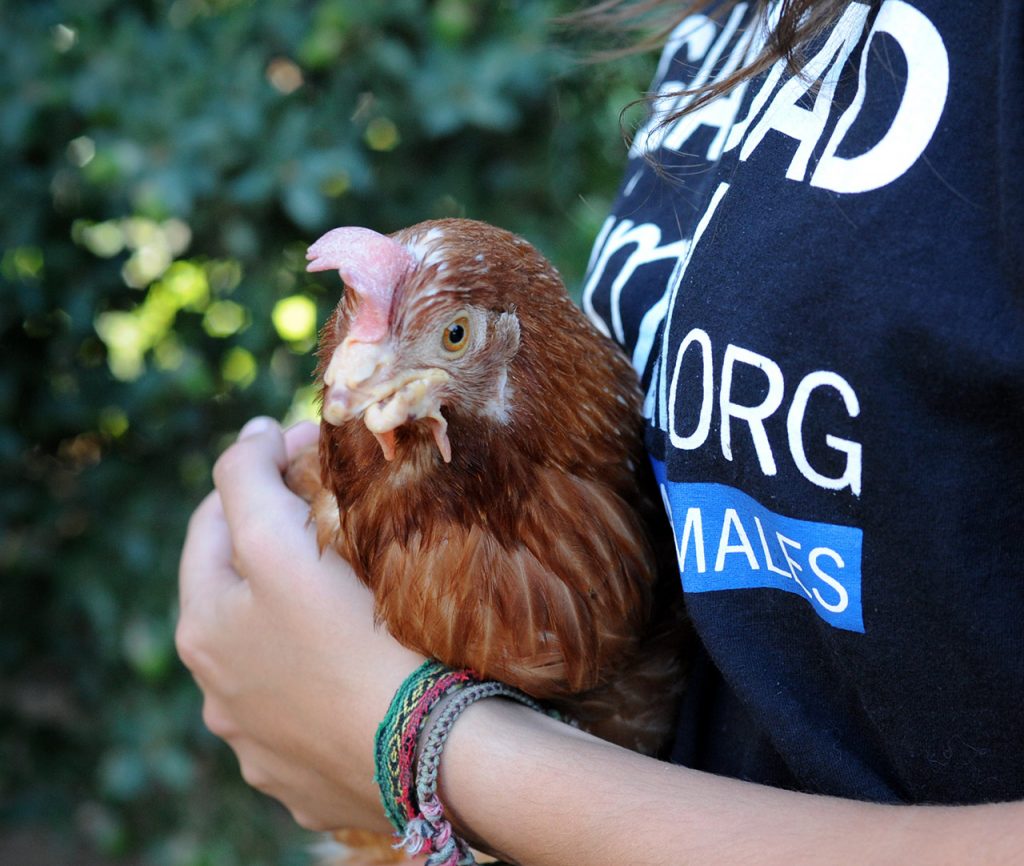
LIVE KINDLY
With rich emotional lives and unbreakable family bonds, farmed animals deserve to be protected.
You can build a kinder world by replacing animal food products with plant‑based ones.
Recommended
